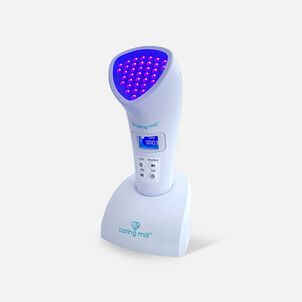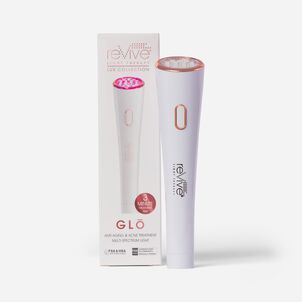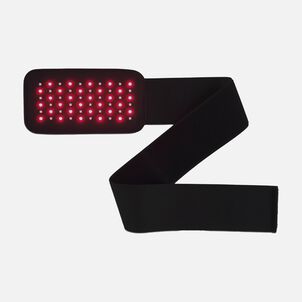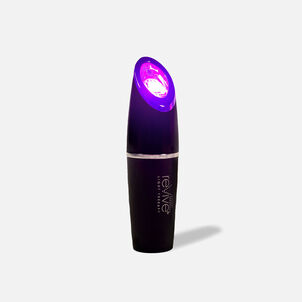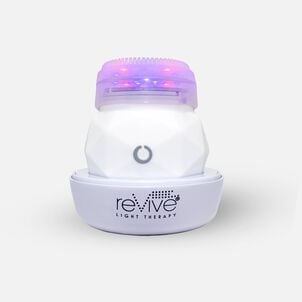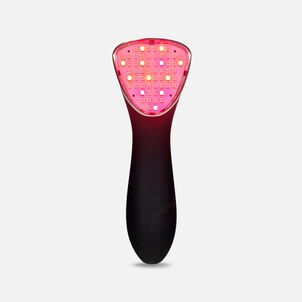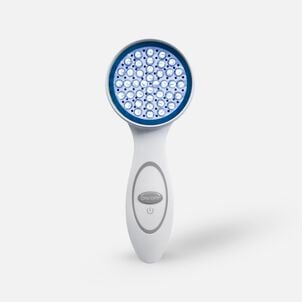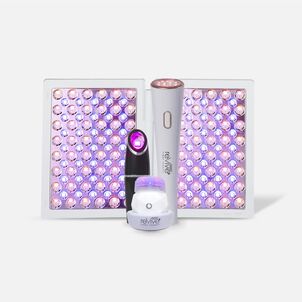With the emergence of the COVID-19 public health crisis in 2020, millions of working professionals transitioned to a work from home arrangement, and pushed by this huge societal change, health experts began to take a closer look at what the effects of all that screen time has on our overall wellness. With way more hours in front of laptops, televisions, tablets and more, most working professionals were getting far more blue light exposure from their devices. But what is blue light and does it have negative effects on our overall well-being? Let's dive in and find out.
What is blue light?
Instead of the visible spectrum of light (think ROYGBIV!) that is ever-present when we go outside during the daytime, we're getting a dose of a single wavelength of visible light called blue light when our faces are plastered in front of computer screens. According to the American Academy of Ophthalmology, blue light is a common wavelength of light emitted by fluorescent lights, LED bulbs and smartphone and computer screens. We mostly absorb blue light into our skin through the sun, but the second highest source of this wavelength in our daily lives comes from artificial sources.
When it comes to skin damage, ultraviolet light is what you should really concern yourself with, specifically UVA and UVB rays that cause sunburn, skin cancers and other forms of damage. According to Self Magazine, UVA and UVB occupy wavelengths of light that we can't see, with UVB existing between 280 and 315 nanometers (nm) while UVA exists between 315 and 400 nm. Blue light is on this same spectrum as a form of visible light, and as humans, we can see between 380 nm and 700 nm on the visible spectrum, and blue light clocks in at about 400-490 nm. While blue light is certainly visible, we often see it as white in color, especially from artificial light sources.
There are two things we know for sure about blue light: it can cause eye strain and could alter a person's circadian rhythms. The AAO reports that blue light is one of the leading causes of eye strain, which is why your eyes may hurt if you are in front of a screen for an extended period of time. Ever wonder why doctors say that you should avoid electronic devices for at least an hour before bedtime? You guessed it: blue light! Blue light affects the body's circadian rhythm, our body's internal clock that helps us wake up and wind down each day. In the daytime, blue light is what wakes us up and stimulates us, but if blue light exposure is excessive, especially during the late afternoon and nighttime hours, this could contribute to a poor sleep cycle and trouble falling asleep.
As millions of working professionals have transitioned to working from home, blue light exposure has become much more prevalent, and we're spending more time in front of these screens than ever before.
Is blue light bad for your skin?
Taking everything we just learned about visible light and where blue light comes from, the question is, "What does all this exposure mean for our skin." Unfortunately, it's still an open question. According to the New York Times, there have been numerous studies on how blue light differs from UV rays. The news source reports that while UV light causes damage to skin by damaging skin cells directly, extended exposure to blue light actually has the ability to damage collagen in the skin. When blue light is exposed to skin, a chemical in the skin layer called flavin absorbs blue light. This produces unstable oxygen molecules, also known as free radicals, which have the potential to cause skin damage. But with a dearth of long-term studies on this topic, we still don't know the long-term effects of blue light on the skin.
And let's not forget that blue light is a common wavelength used to treat acne through light therapy devices, and many people have found success in clearing up skin imperfections through the use of this drug-free technology. So as evidence continues to pile up on either side of the divide, most dermatologists say that blue light is a complicated issue and one that is still not fully understood.
Given blue light's effects on skin, should I wear sunscreen indoors?
Given how much time we're all spending in front of screens these days, you may be asking yourself, "Should I use sunscreen everyday?" as well as, "What SPF do I use?" Ultimately, it comes down to personal preference, but there are a few things you should know if you'll be creating a new "indoor" sun care regimen.
According to the New York Times, one of the best ways to protect yourself from blue light is through the use of mineral sunscreen, specifically ones that contain iron oxide. Mineral sunscreens that contain zinc oxide or titanium oxide are also safe choices that can help protect your skin against prolonged blue light exposure. Products that contain vitamin C are also helpful, as these antioxidants can enter the cells directly and are small enough to penetrate the skin layer to fight the presence of free radicals. If you can find a vitamin C/vitamin E combination, that's an even better choice to double up the fight against free radicals.
When it comes to SPF, use your FSA as a guide! The only sun care products available for FSA spending include those with broad spectrum protection against UVA/UVB rays, and an SPF level of 15 or above. Combining these traits with a mineral sunscreen that is adept at blocking out blue light, and you'll have a solution that works for our continuing pandemic and when it's time to resume our pre-pandemic lives outdoors.
The bottom line is that protecting yourself from blue light comes down to personal preference and how much you are worried about the signs of aging appearing on your skin. Protection against ultraviolet rays when outdoors should always take precedence, but if you find yourself spending long hours in front of screens with no end in sight, now may be the perfect time to take a closer look at your sun care regimen to find a product that gives you peace of mind while we all ride out quarantine together.
-
Thanks for visiting the FSA Learning Center! To stay on top of all FSA news that can affect your health and financial wellness, be sure to follow us on Facebook and Twitter.

